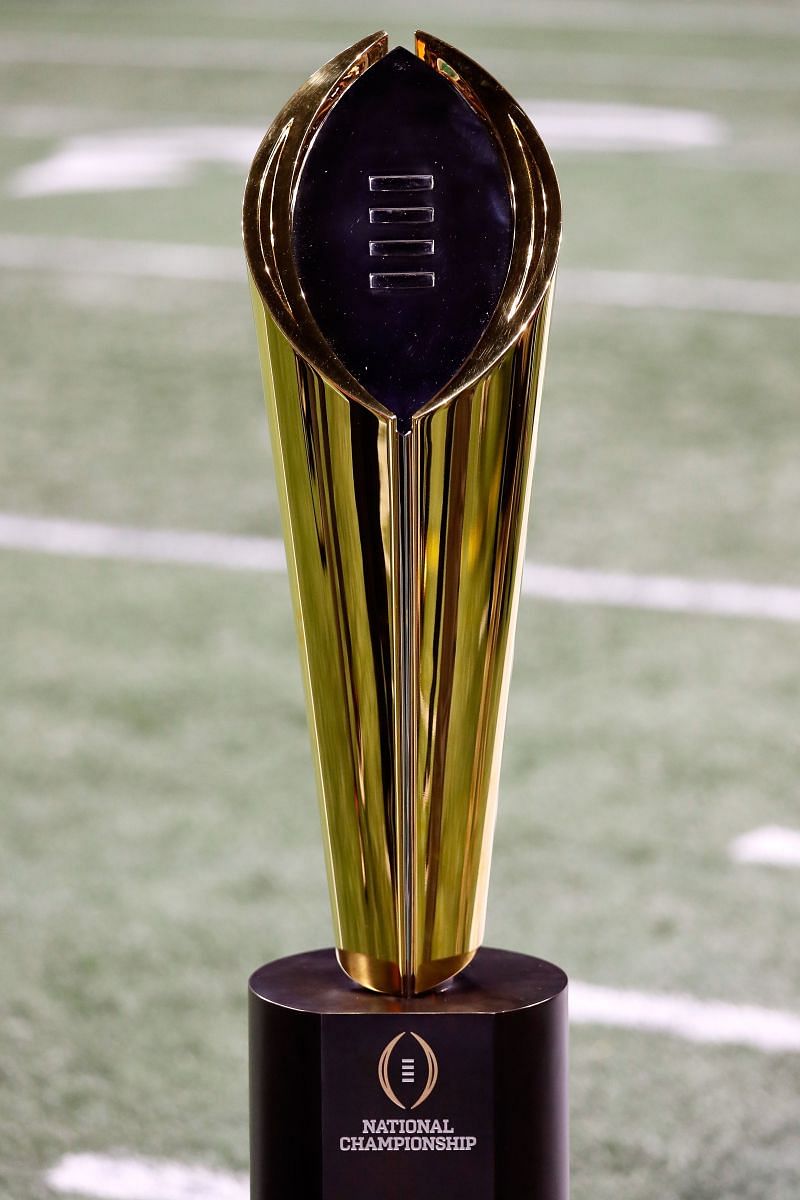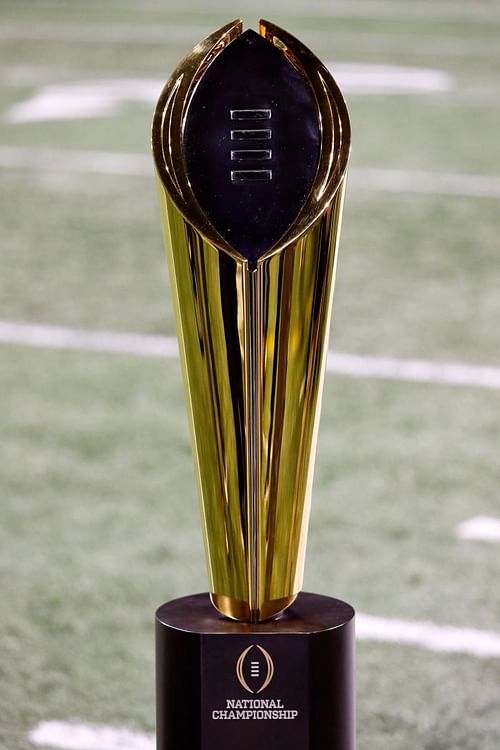
CFP 12-team expansion: Everything you need to know

The NFL is on a short hiatus between practices and the College Football Playoff (CFP) has swooped in and stolen the headlines. The CFP management committee recently proposed a 12-team playoff to replace the current four-team playoff format.
The current playoff format has been around since 2014 but has been under scrutiny for the exclusion of most college teams, many of whom are well-deserving of a playoff spot. The CFP's new proposal would include eight more football programs and help spread wealth around.
CFP 12-Team Playoff Proposal
The 12 teams that the CFP includes in their format would consist of the six highest-ranked conference champions (there are 10 conferences) and the six at-large teams. The at-large teams would be the six highest-ranked schools apart from the conference champions.
Of the six conference champions, the top four will get a bye. The remaining eight teams will face off, with the 5-8th seeds hosting the first round on their home turf. The next three rounds will compete on neutral ground in bowl games. The board announced that it would take the proposal under evaluation over the next several weeks.
Pros and Cons of CFP 12-Team Format
The current four-team playoff the CFP uses has been described as popular and successful. The committee also said they are more than open to ideas on how more teams can be included to give more student-athletes a shot at the playoffs. There are pros and cons with both formats.
There will be more games played in a season. That can be good and bad for the NCAA. More games mean more revenue for the NCAA and that money gets spread around to colleges in the CFP.
When you break it down, the teams in the championship will have played a total of 17 games, compared to the current 12. This will eventually raise alarms for the student-athletes. Players aren't compensated beyond their scholarships and stipends. The format proposal would have to include revisions to the mandates so student-athletes are taken care of.
Student-athletes not being paid has been a heated debate for years now. If the 12-team playoffs get approved, the NCAA may have to come to a conclusion and pay the players in some sense to compensate for the extra playing time. Players are at great risk of injury and would be asked to do more work for no money while the NCAA and CFP profit.
Having more teams means more games and that means extending the current season format. The national title game is held around the first week of January. WIth the larger playoffs, the quarterfinals will be around the 1st and the championship game in a couple of weeks.
Current contracts and new revenue are a large portion of the story. For starters, the CFP has a current TV deal with ESPN that ends after the 2025 championship. If the new format is accepted, there is a chance it could begin in 2023 but the contract would have to be renegotiated. 2026 seems like a more realistic date and we would get four more years of the current format.
While the top four seeds get a bye, they lose out on crucial revenue in the process. The first round of the new CFP will have the 5-8th seeds host a game at their home stadium. The rest of the playoffs is on neutral ground, and those top four programs lose out on revenue from hosting a game. Another flaw lies within neutral bowl games.
College football fans are die-hards and loyal, but it is a tall task to ask fans and students to travel to three straight neutral sites. There might be a struggle with college program-based fan attendance and fans could end up displeased.
Notre Dame is an independent program but made it to the CFP in 2019 (they had to go undefeated in 2019 to just be No.3). Being an independent program, Notre Dame could never be a conference champion and would always be at a disadvantage. The program joined the ACC temporarily last year due to COVID-19 to have a full football season.
Notre Dame AD and CFP committee member Jack Swarbrick sees the new 12-team format as making it less likely his team will join a conference. To be blunt, it would be less money in his pocket. As an independent program, Notre Dame would have a better chance at the playoffs with more open spots.
In a conference, their record would have to compete with others and they could have to compete in a conference championship. In the long run, ND making the playoffs is more important and will rake in more money than joining a conference.
Another team being talked about excessively is the AAC's USF. The 12-team CFP would give them a clearer and more direct path to the championship rather than being another undefeated team on the outside looking in.
There are hundreds of additional questions to ask: What happens to the six big bowl games on New Year's Day? By when will the proposal get approved or denied? What happens to all of the other independent programs? Would the current playoff host cities be moved if the new format is put into place before 2026? (Indianapolis hosts in 2022, LA in 2023, and Houston in 2024)
In reality, the 12-team CFP would include more teams that deserve a shot. The pool of teams in the playoffs would not get stale with the same teams. We could see more underdog stories like we do in college basketball or the NFL.
Players will have to be paid or compensated better with the longer season though. And we can finally get the NCAA football video game back, which is really all we want, right?